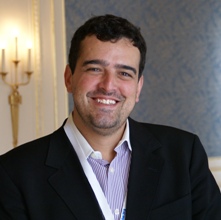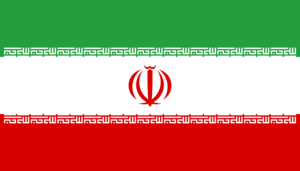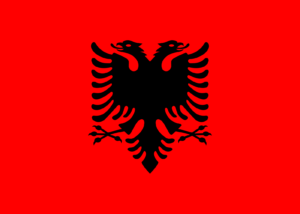Brazil: “Solar Water Heaters will become a culture”
November 2, 2010
 Carlos F. C. Faria is the founder of Brazilian consultancy Studio Equinócio – SE and former director of the Brazilian solar industry association ABRAVA. Studio Equinócio is dedicated to the development of solar energy in Brazil. The company works in partnership with industries, associations, banks, local governments and energy utilities to establish a solar energy network in Latin America. At the Eurosun 2010, solarthermalworld.org spoke with Carlos Faria about what drives the market in Brazil.
Carlos F. C. Faria is the founder of Brazilian consultancy Studio Equinócio – SE and former director of the Brazilian solar industry association ABRAVA. Studio Equinócio is dedicated to the development of solar energy in Brazil. The company works in partnership with industries, associations, banks, local governments and energy utilities to establish a solar energy network in Latin America. At the Eurosun 2010, solarthermalworld.org spoke with Carlos Faria about what drives the market in Brazil.
Photo: Eurosun
solarthermalworld.org: Despite all the talk about the financial crisis, the Brazilian market has increased notably in recent years. What are the driving factors behind that growth?
Carlos F. C. Faria: I think we have had a big drive because of the new building codes which mandate the use of solar water heaters. Twelve cities have already implemented such solar building codes, the largest one being São Paulo. However, there are more than 5,000 cities in Brazil, so it will be a long way until we see mandates all over the country.
Our industry is in a very strong position. There are 200 companies making solar collectors and solar boilers. The exemption of corporate tax and VAT has just been extended again, until the end of 2011.
Our local utilities are required to invest 0.5% of their net turnover in energy-efficiency measures. Almost all of them invest the money in projects with solar water heaters for low-income households. Moreover, Brazil will host the World Cup in 2014 and the Olympic Games in 2016, therefore, we will have a lot of new buildings, stadiums, hotels, hospitals – a great market for solar energy. The government estimates the construction of 60,000 new accommodations, most of them equipped with solar water heating systems.
solarthermalworld.org: In some of the European countries which have solar obligations, we have seen that system quality goes down, because people want to buy cheap if they are forced to invest. Have you had a similar kind of experience with the solar obligations in Brazil?
Carlos F. C. Faria: No, because we learned from the experiences in Europe. So when we designed the mandatory building law, we implemented some minimum standards for efficiency and warranty. And, it is necessary to participate in the labelling program in Brazil.
Aside from that, we mandated a minimum of solar fraction for each region of Brazil. For example, in São Paulo, a solar thermal system has to achieve a minimum of 40% of solar fraction. The only criterion that can keep the builder from installing a solar water heater are the shadows cast by surrounding buildings.
I think the mandate creates a new culture among the builders. First, they didn’t know what a solar water heater was, that’s why they showed great resistance and became very upset with the law in the beginning. But now, they are creating new solutions, new kinds of buildings. For example, when solar installations were requested in large buildings with 30 to 40 floors, we had to create new engineering solutions to distribute the solar hot water in these buildings. It looks as if solar water heaters will become a culture in our country. Everybody wants to have one in his home. I think there’s going to be a big change.
solarthermalworld.org: And, amazingly enough, this works without subsidies. So I think the payback times must be reasonable for private and commercial investors?
Carlos F. C. Faria: Yes, they are. In the beginning, some of the local utilities created some rebate programs, but that was 20 years ago. Today, we don’t have subsidies at all. The solar industry just doesn’t pay taxes, which you could call an incentive by the government. Payback times are very short, because electricity is expensive in the residential sector in Brazil. Today, the payback time for a system is between 1 and 4 years, depending on the region. The maximum payback time is five years if we are talking about some industrial applications for which electricity and gas tariffs are very low. Solar water heaters in Brazil can certainly compete with electricity and gas and it makes sense to substitute these kinds of fossil energy sources, which are necessary for applications other than warm water at low temperatures.
solarthermalworld.org: Have you already encountered some European suppliers, which sell solar thermal systems in Brazil?
Carlos F. C. Faria: Yes, several foreign enterprises are seeking to forge partnerships with Brazilian companies. We now have some joint ventures, because one thing is important above all: price. Many companies from Europe try to export their technology, but the price tag is too high, which means that selling European or North American products in Brazil is a difficult task. But if you form a joint venture, it’s becoming affordable, because of the technology transfer that goes hand in hand with an increase in manufacturing quality and the development of new applications, such as solar cooling or industrial process heat. I think there is enough room for new solar thermal suppliers and I know that we have many companies looking for partners in Europe, so there are many great opportunities to form joint ventures with Brazilian companies.

